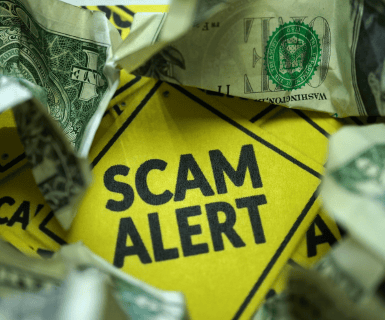Advertisement
Can you imagine throwing away $800 million? Find out what happened to a systems engineer, later in this email.
💵 Today’s Top Stories
From fake prize notifications to packages you never ordered, here are some common Amazon scams, how to avoid them and what to do if you stumble into one. Read more.
Looking for new ways to save on groceries? This grocery shopping guide will give you some big ideas to save more, spend less and keep your food budget on track. Read more.
This Costco program allows you to trade your iPhone, iPad, MacBook, Apple Watch, Samsung phone, Lenovo laptop and more for a Costco Shop Card. But does it offer competitive rates vs. other electronics buyers like Swappa? Read more.
This warehouse club typically offers cheaper eye exams than its competitors, and you don’t even have to be a member. It also offers a great selection of glasses at decent prices. Read more.
📣 Today’s Top News
📉 A New Wrinkle To Estate Planning and Wills
We’ve all misplaced our keys, lost a pair of sunglasses or accidentally left a hat in a hotel room.
But how would you feel if you misplaced … $800 million?
James Howells, a 39-year-old systems engineer, can tell you. He mistakenly threw away a hard drive with about 8,000 Bitcoin. (The price of a single Bitcoin was flirting with $100,000 as of this writing.) Now he’s suing for the right to search a landfill for the hard drive.
Clark says Bitcoin is speculation akin to betting in a casino and not investing.
But put aside the “should you or shouldn’t you” of crypto for a second.
If you self-custody your crypto with a hard wallet, you’re holding assets on the blockchain. This means you need to use a thumb drive-like hardware, a “seed phrase” (a long string of words that serves as a password) and some basic knowledge (i.e. how to convert crypto to U.S. dollars).
Howells threw his hard drive away. But what if someone simply dies, and no one else has knowledge of how to access those assets? It’s a new estate-planning wrinkle in a society in which our finances are increasingly more digital and self-driven.
Although they’re not as complicated, online-only bank accounts can present similar issues. If you don’t get a paper statement and your spouse, children or whomever you’d like to be able to access your money has no idea the account exists – much less your usernames and passwords – may never find it.
Clark’s favorites Fidelity, Schwab and Vanguard either operate physical branches, offer extensive and professional human customer service or both. But with the rise of robo-advisors and digital apps such as Robinhood – which for years had no phone number you could proactively call – the future of all finances may present more like crypto in terms of estate planning.
When you’re reviewing your will, make sure that your beneficiaries know how to access any digital or online assets you have.
📊 Stat of the Day
🥖 $270.21: The average weekly grocery bill for American households according to U.S. Census Bureau data. Grocery prices are up 20% in the last four years. Hawaii ($334) and Wisconsin ($221) pay the most and least for groceries, respectively.
💰 Deal Alert: Today’s Top Deals
🎙 Podcast
Clark's updated his advice on selling your car! 🚗 Find out where to get the best price and what he’s predicting for the 2025 auto market.
Note: This episode features content that previously aired and has been thoughtfully edited together to explore a similar topic. During our Thanksgiving week break, we want to give viewers the opportunity to revisit favorite segments or catch one they may have missed.
☎ Need Money Help?
The Team Clark Consumer Action Center is a free helpline that can help you navigate your money questions. Call 636-492-5275. Visit clark.com/cac for more information.







